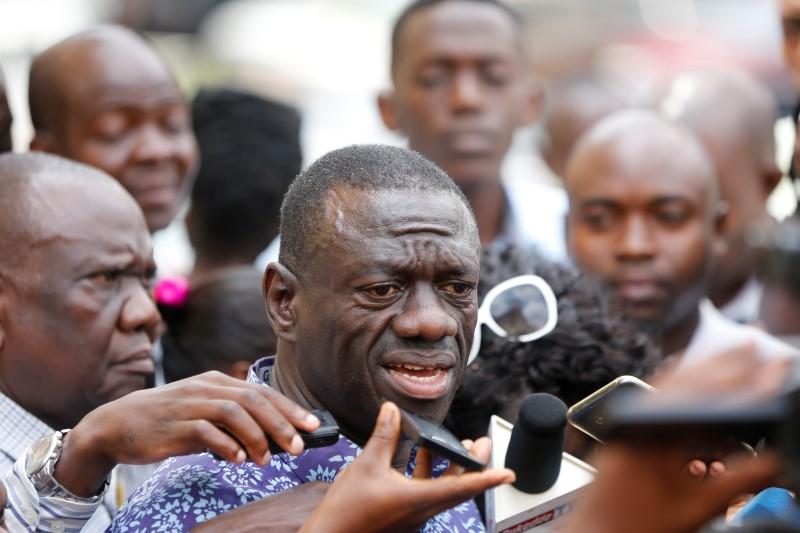Yesterday, the Katonga faction of the Forum for Democratic Change (FDC) convened a delegates’ conference where they declared the party dissolved.
The decision was led by senior members, including Dr Kizza Besigye, the founding president, national chairperson Wasswa Birigwa, and current vice-president Erias Lukwago.
They stated that this dissolution is a step toward forming a new party that will be unveiled soon.
FDC Split: A Party Divided
The FDC has been divided into two factions: the Katonga faction led by Dr. Besigye and the Najjanankumbi faction led by Patrick Oboi Amuriat.
Yesterday’s conference, convened by Birigwa, was validated by a recent court ruling, which confirmed him as the rightful national chairperson of the FDC after being disowned by the Najjanankumbi faction.
Rationale Behind the Dissolution
Wasswa Birigwa emphasized that internal conflicts and ideological differences within the party had hindered their ability to effectively challenge the National Resistance Movement (NRM).
The dissolution was seen as necessary for the party to regroup, rebrand, and come back stronger.
The decision was supported by 700 out of 804 delegates.
Legal Backing for Dissolution
Erias Lukwago presented a report from the National Executive Committee (NEC), highlighting that the Buganda Road Court had dismissed a case challenging Birigwa’s legitimacy as the FDC chairperson.
Lukwago cited the party constitution, which allows for the party’s dissolution by a two-thirds majority at a national delegates’ conference, provided the resolution is supported by at least 80% of the attendees.
Najjanankumbi Faction’s Response
John Kikonyogo, the spokesperson for the Najjanankumbi faction, criticized the dissolution, labelling it as dangerous and unrepresentative of true FDC leadership.
He indicated that a meeting with Amuriat and Nandala was necessary to craft a response, suggesting that those who voted to dissolve the FDC would no longer be considered members.
Political and Legal Implications
Experts believe the Katonga faction’s decision has plunged the party into a political and legal quagmire. Civil society activist and lawyer Godber Tumushabe pointed out that the court’s confirmation of Birigwa as chairperson could lead to the FDC’s dissolution unless challenged.
Political analyst Prof. Ndebesa Mwambutsya added that the situation is complex and intertwined with the NRM’s overall power.
Call for Youth Involvement
Dr Besigye urged young people to engage in politics and fight corruption, emphasizing that the party’s dissolution is a step toward resetting the party to its core values.
He warned against being swayed by financial incentives from the regime.
Next Steps and Interim Leadership
Following the delegates’ decision, a notice will be issued within the next six months as per Ugandan law.
The conference also resolved to extend the tenure of the interim leadership under Lukwago and Secretary General Harold Kaija for nine months to manage the transition.
Electoral Commission and Expert Opinions
Julius Mucunguzi, spokesperson for the Electoral Commission, explained that deregistering a party involves a lengthy legal process.
Other experts noted that dissolving a party requires careful legal scrutiny, referencing similar cases involving other political parties like the Democratic Party and Uganda Peoples’ Congress (UPC).
Mafabi’s Response to the Katonga Faction
The Najjanankumbi faction, led by Secretary General Nathan Nandala Mafabi, denounced the Katonga faction’s actions, dismissing their delegates’ conference as illegitimate.
Mafabi reiterated that only authorized party leaders can convene such meetings and warned the public against being misled by what he termed as political theatrics.
Moving Forward: Mobilization Continues
Despite the ongoing conflict, the FDC’s Najjanankumbi faction remains focused on its mobilization efforts.
The next major event is scheduled for August 24, 2024, in Jinja, as part of their continued campaign across the country.

